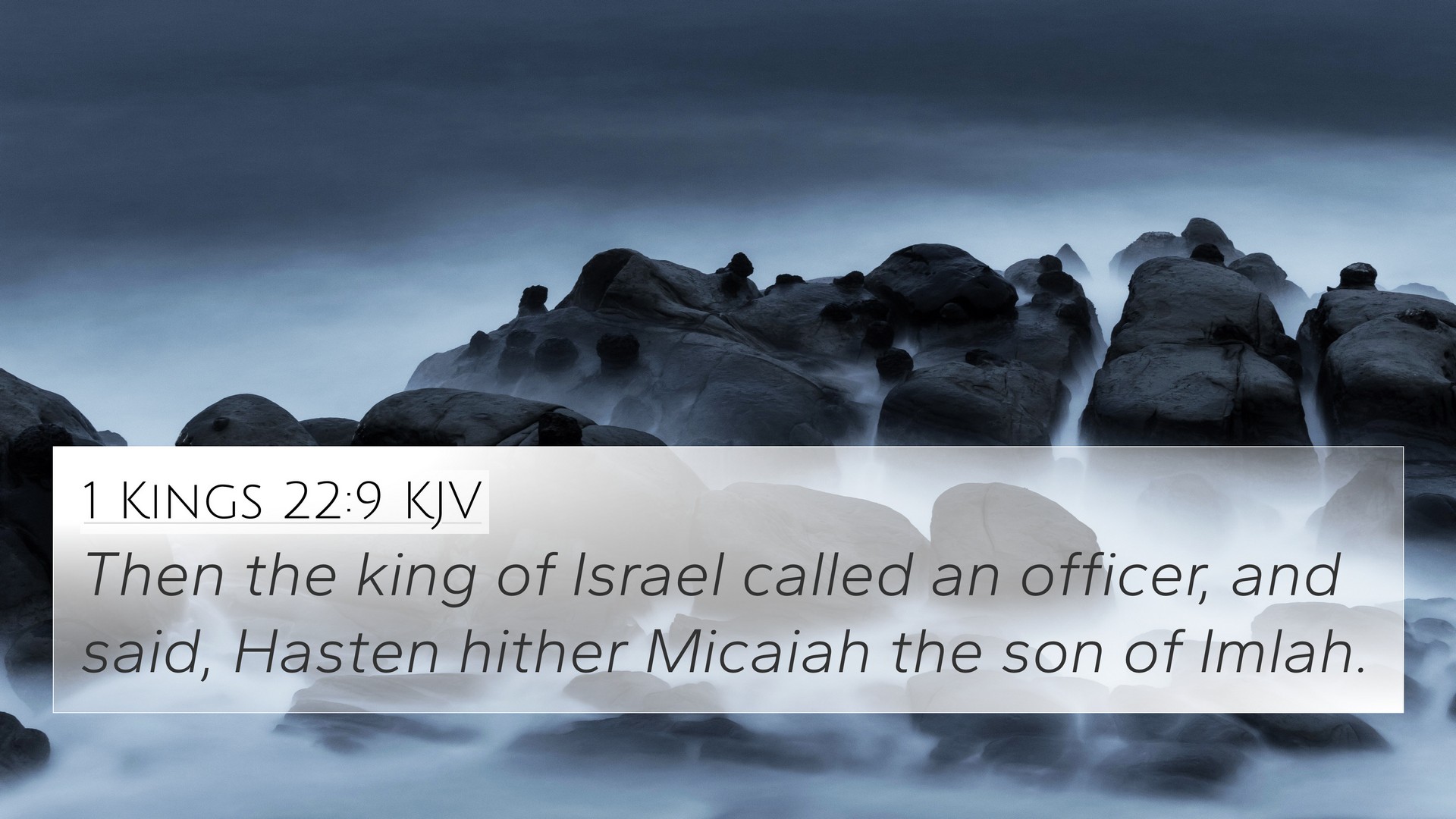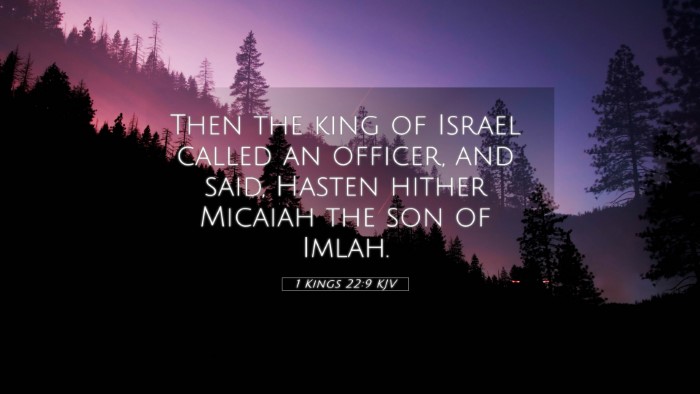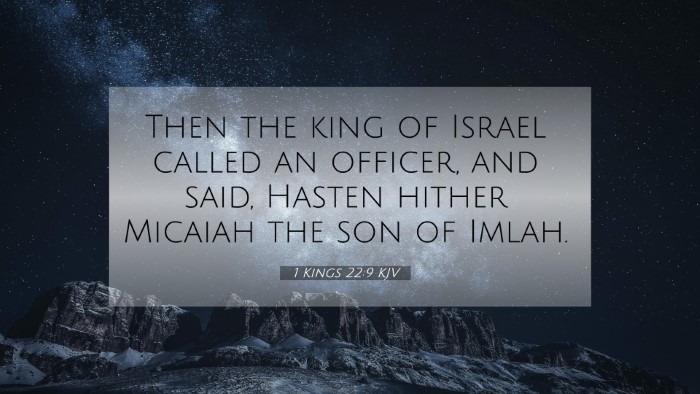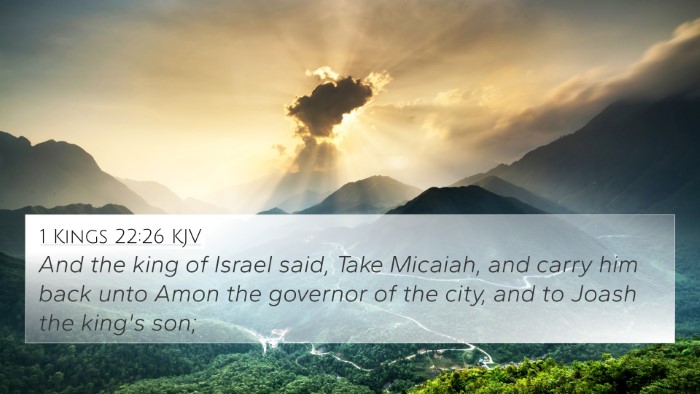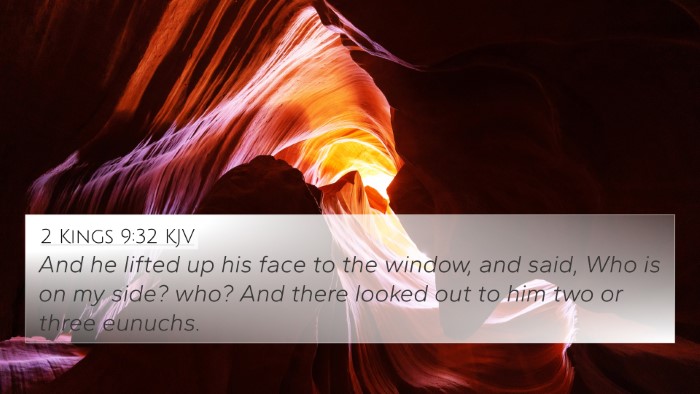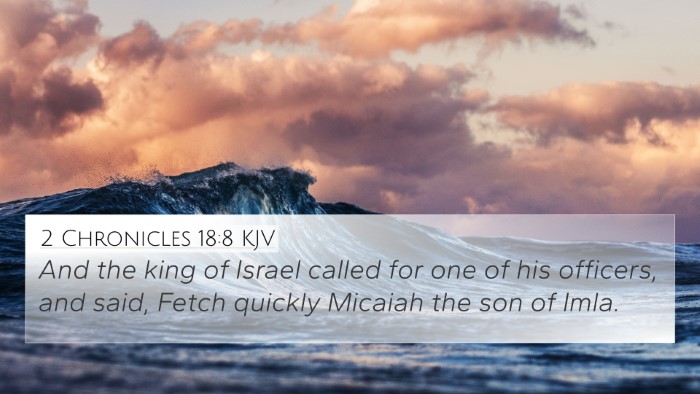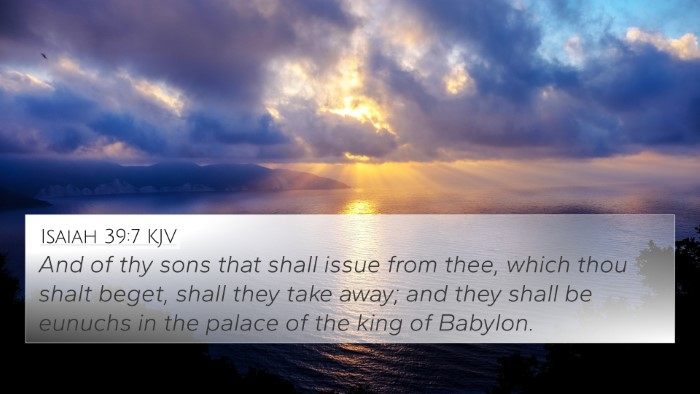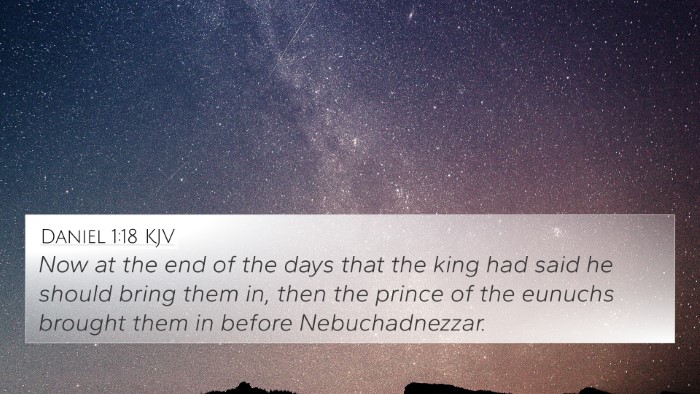Understanding 1 Kings 22:9
1 Kings 22:9 states: "Then the king of Israel called an officer and said, 'Bring Micaiah the son of Imlah.'" This verse is pivotal in the context of a significant prophetic encounter that leads to profound implications for Israel's future.
Contextual Background
This verse occurs during a critical moment in Israel's history when King Ahab of Israel and King Jehoshaphat of Judah are preparing to go to war against Ramoth-gilead. It captures the moment when Ahab seeks divine counsel through the prophet Micaiah, showcasing the importance of prophetic voices in decision-making processes among the kings of Israel.
Interpretations and Insights
-
Matthew Henry's Commentary:
Henry emphasizes the significance of Ahab's request for Micaiah, illustrating Ahab's recognition of the need for prophetic guidance. Despite the presence of false prophets, Micaiah represents a true channel for God's word. This highlights the ongoing struggle between truth and deception in leadership.
-
Albert Barnes' Notes:
Barnes points out that Ahab initially relies on the 400 "prophets" to obtain favorable predictions but ultimately calls for Micaiah because he desires the truth. This reflects the tension between wanting a pleasant prophecy and the genuine need for divine truth.
-
Adam Clarke's Commentary:
Clarke notes the significance of Micaiah's character, as he is depicted as a lone voice amidst many. His reluctance to prophesy is indicative of the genuine burden that comes with declaring God's will, particularly in a hostile environment. Clarke highlights the importance of integrity in prophetic roles.
Thematic Connections
The verse opens up numerous thematic discussions, particularly in the realm of leadership, prophecy, and accountability.
Prophetic Authority and Responsibility
Micaiah's summoning reveals the tension in prophetic ministry: while false prophets may lead to success in public favor, true prophets often bear the weight of unpopular truths.
Importance of Seeking Divine Counsel
Seeking authentic prophetic voices, as Ahab does, underscores a critical theme in scripture concerning wisdom and guidance in decision-making.
Cross-References
- 2 Chronicles 18:5 - A parallel account that details Ahab's inquiry for prophetic truth.
- 1 Kings 18:17-19 - The confrontation between Elijah and the prophets of Baal, illustrating the struggle between true and false prophecy.
- Jeremiah 23:16 - A commentary on the false prophets leading the people astray.
- 1 Corinthians 14:29 - The New Testament approach to prophecy, emphasizing discernment.
- Deuteronomy 18:20-22 - Instructions concerning true and false prophets, providing criteria for discerning authentic prophecy.
- James 3:1 - The role of teachers and prophets, emphasizing the responsibility that comes with such roles.
- Amos 3:7 - God reveals His secrets to His prophets, underscoring the unique role of true prophetic voices in God's plan.
- Matthew 24:24 - Jesus' warnings about false prophets and deceptive teachings in the latter days.
- Hebrews 1:1-2 - A reminder of God's communication through prophets in the past and ultimately through His Son.
- Luke 4:24 - Acknowledgment of the prophet's unacceptance in his own land, resonating with Micaiah's experience.
Practical Applications
Reflecting on 1 Kings 22:9 encourages believers to:
- Value and seek out truth in spiritual guidance, even when it's challenging.
- Recognize the importance of integrity among spiritual leaders and the weight of responsibility they carry.
- Learn discernment in distinguishing between false and true teachings.
- Appreciate the prophetic tradition as a means of understanding God’s will in tumultuous times.
Conclusion
1 Kings 22:9 encapsulates a moment of critical importance in biblical history, reflecting themes of leadership, truth, and the struggle against deceit. The insights gathered from respected commentaries provide depth to our understanding while cross-referencing related scriptures enriches our study of God’s Word. By delving into these connections, believers can gain enhanced clarity on the role of prophecy and the quest for divine truth, ultimately guiding them in their faith journey.
